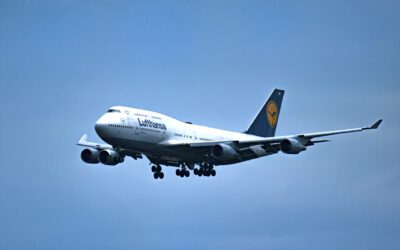If you fly enough, eventually you’ll be scheduled on a delayed or canceled flight. Last year, more than 766,000 flights (~22 percent) in the US were delayed (arrived or departed the gate 15 minutes or more late), while more than 98,000 flights (~2.9 percent) were canceled.
About one-third of cancellations occur due to maintenance or mechanical issues, and two-thirds by weather.
Here’s what you can do to cope with delays and cancellations.
• Schedule your flight for as early in the morning as possible: Especially when weather causes delays and cancellations accumulate through the day, typically getting worse over time, before the problems eventually ease off.
To minimize the impact of the delays or cancellations, you’re better off planning to fly in the morning. Even if it’s a cancellation due to mechanical problems, you have a much better opportunity to reschedule to a later flight that day than if you’re scheduled to fly in the afternoon or early evening.
Last year, I was scheduled to fly to Los Angeles on an 8:30 a.m. flight. They kept trying to fix the plane, but at 10:30 a.m. they finally canceled the flight. Other flights later that day were almost full, but I was able to rebook a flight to LA later that afternoon. It’s likely I would have had to fly the next day if my canceled flight was scheduled in the afternoon or evening.
• Check your possible flights’ on-time performance before booking: I use the FlightStats website to look up my possible flights’ on-time and cancellation history. Some flights are consistently awful and I avoid them whenever possible.
• Non-stop flights can eliminate missed connections and multiple or accumulated delays. I try to fly on direct non-stop flights whenever possible to increase the likelihood my luggage will arrive with me. Flying direct, non-stop also can minimize delays due to late arrival for a connection, or when connections are delayed or canceled. When booking a connecting flight, I try to avoid flights through airports with weather problems at the time of the year I’m flying.
• Arrive at the airport early. Delays and cancellations are often announced only a few hours before a flight, especially when due to mechanical problems. Arriving early and knowing your flight is delayed or canceled before other passengers can give you a better chance to handle the problem. It will put you at the front of the rebooking line.
• If you need to rebook your flight, get on the phone. If you’re at the airport and your flight is canceled, don’t merely get in line and wait your turn. While you wait, get on the phone and call the airline to rebook on another flight. It could mean the difference between a short delay at the airport, or an overnight stay near it.
When my Los Angeles flight was canceled, I immediately called US Airways, while most of the passengers rushed off to the customer service desk in the terminal with three agents, and waited patiently. Within 10 minutes I was rebooked for a flight about four hours later. Soon after that, passengers on my flight found the next flight they could get was flying the following day.
Flying internationally? If you get bad news your flight is canceled while flying internationally, you want to be able to call the airline immediately to rebook, even when out of your home country. Don’t forget to have an international calling plan for your cellphone so your call doesn’t cost an arm and a leg, and make sure you’ve saved the airline’s phone number you can call internationally in your cellphone.
• Now that you’re rebooked, you’re likely going to be at the airport for a while. No matter what you do, the odds are high you’ll be spending at least a few hours in the airport. I know it stinks, but it will be worse if you don’t have essentials in your carry-on, including: medications, toilet articles, a change of clothes — especially if you have an overnight stay — and items to keep you from being bored to tears.
• If it’s 8–8:30pm or later, recognize you’ll likely not be flying until the next day. The later it is in the day when your flight is canceled, the more likely you’re going to need a hotel room for the night. Use a smartphone app to hunt for a free hotel room while you’re rebooking your flight. If you’re traveling with a companion, have them look for the hotel while you’re rebooking with the airline. If it’s a weather delay, rooms will be going fast.
While the airlines in the US aren’t required to give you vouchers for food and a hotel, don’t forget to try to get them, as they often will give them to passengers they couldn’t accommodate on a flight close to the original time. In Europe, the rules about cancellation are different than the US and protect passengers far more.
• Especially if it’s an expensive trip, buy travel insurance. Financially, travel insurance can make you whole if your flight is canceled and the delay is significant; for example, causing an overnight stay at a local hotel and numerous meals.
(Image: American Airlines A319 landing at Philadelphia International Airport, Copyright © 2015 NSL Photography. All Rights Reserved.)
After many years working in corporate America as a chemical engineer, executive and eventually CFO of a multinational manufacturer, Ned founded a tech consulting company and later restarted NSL Photography, his photography business. Before entering the corporate world, Ned worked as a Public Health Engineer for the Philadelphia Department of Public Health. As a well known corporate, travel and wildlife photographer, Ned travels the world writing about travel and photography, as well as running photography workshops, seminars and photowalks. Visit Ned’s Photography Blog and Galleries.



